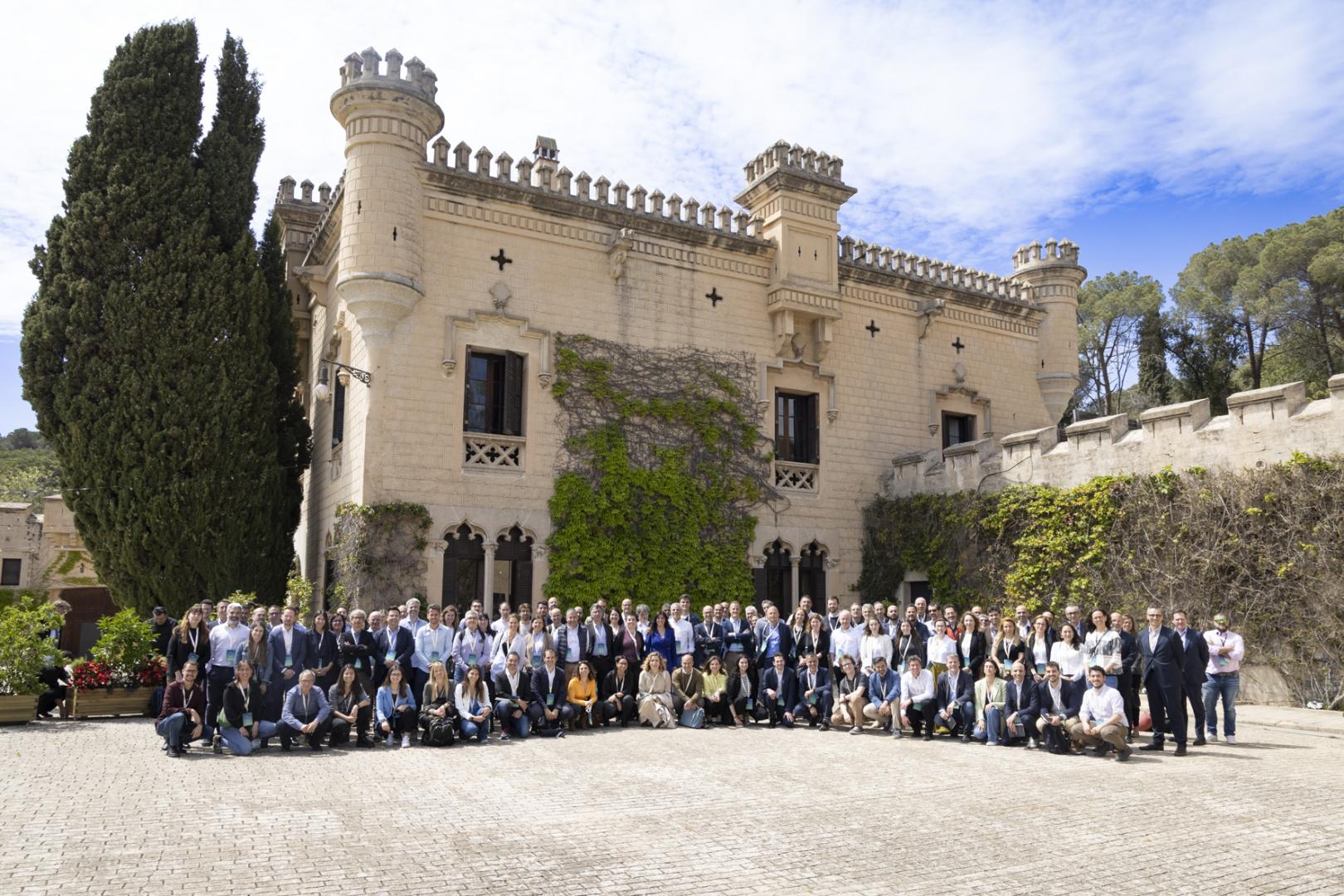The CEEC Strategic Immersion brings together around 150 energy professionals to discuss the implications that the decarbonisation process has on the economy

The Catalan Energy Efficiency Cluster celebrated the 5th edition of the Strategic Immersion on April 27, a day to publicize and debate the latest trends in the energy sector. The event, held in Jalpí Castle (Arenys de Munt), brought together more than a hundred energy professionals who were able to discover the implications that the decarbonisation process has on the economy through different presentations, tables rounds, and networking sessions.
The president of the CEEC, Joaquim Daura, kicked off the day with an institutional welcome to the more than 140 professionals from the sector who gathered. During his speech, Daura asked the sector to "keep pushing" to make decarbonisation and the energy transition possible. The president of the CEEC also referred to the two major crises affecting the sector: the price crisis and the climate emergency: "The solution to both challenges is the same: we must decarbonise through energy efficiency", affirmed
Then, the day continued with the first of the presentations by Luís Rey, senior researcher at the Observatory of the Energy Transition and Climate Action Basque Center for Climate Change (BC3). Rey presented the report "The energy transition and Climate Action", in which he talked about the most outstanding milestones in the energy transition of 2022, with special emphasis on the reduction of emissions. "With energy prices and rights to high CO₂ emissions, emissions in Spain increased by 3%", commented Rey, who added that the electricity and transport sectors are the areas where emissions have increased the most with 30% and 6% respectively.
The BC3 researcher also assessed the PNIEC's objectives in terms of reducing emissions and stated that "they are being met", thanks to the positive impact of the pandemic in this section, but he pointed out that areas such as electrification and energy dependence still "require improvements" to achieve the set goals.
Then it was the turn for the presentation by Antoni Ballabriga, Head of Responsible Business at BBVA and Member of the Financial Sector Advisory Council of the International Energy Agency. With the title "Sustainability, a systemic change for the financial sector", Ballabriga talked about the investments needed to achieve climate neutrality: "It is necessary to invest 8% of GDP annually to achieve a 0 emissions economy, and we are currently very far away". In this regard, Ballabriga, an advisory member of the International Energy Agency (IEA), cited one of the agency's latest reports that calls for "multiplying by 4 the investment in renewable energy" which implies "structural changes".
After the presentations, the Strategic Immersion took a break for coffee, where the attendees were able to chat and debate about the highlights so far. After this break, the event resumed with a networking activity developed by the Marinva Group with the aim of generating synergies and opportunities for collaboration between the representatives of the organizations present at the conference.
As the last activity of the morning, the Immersion gave way to the first of the round tables, "Economic agents facing the challenge of decarbonisation. Strategies and roadmap". Moderated by the member of the CEEC Board of Directors and director of sustainability of ARCbcn, Esther Izquierdo, the panel had the participation of the Head of Circularity of La Farga, Carles Camprubí; the Director of R+D+I Nature and New Activities of SAICA, Luís Miguel Gil; the Director of Sustainability of the Port of Barcelona, Jordi Vila; and the Product Manager of Grupo Construcia and CEO of Eco Intelligent Growth, Marc Basany.
In the final stretch, once the day resumed after lunch, the second and last panel of experts took place to discuss the role of disruptive technologies as tools for the decarbonisation process. This table was moderated by the member of the Board of Directors of the CEEC and member of the IREC, Marta Fonrodona. The rest of the table was formed by the Food and Beverage Node Coordinator of the Blockchain Center of Catalonia, Àlex Pèlach; I2CAT cybersecurity expert David Company; and Eurecat's senior researcher and project manager R+D Smart Management Systems, Regina Enrich.
In this 5th edition, the Strategic Immersion also reserved a space for the cluster members to present products or services aimed at energy decarbonisation. Antonio Molino, from Jung Ibérica, participated; Javier Ray of Defcon8; Xavier Herranz of the ICDQ certifier; Alexandre Manon from Energy Pool; Javier Rodríguez of Barbara IoT; and Jordi Satorras from Simon.
Finally, the day ended with a final speech by the Vice President of the cluster and Director of Marketing of Circutor, Bernat Garcia, who wanted to reflect on some of the interventions around the process of decarbonization and energy transition that took place during the day. "We can not stop; decarbonization is not only an economic issue, we are talking about the future of the planet", said Garcia, who also alerted the energy professionals who were present about the need "to be agents of this transition that does not have return" in a sector as "strategic" as that of energy.